Teresa Shewell knows it sounds strange, but the key emotion she felt when diagnosed with an incurable blood cancer was relief.
The Aberdeen grandmother, then 70, had been in agony for months, battling pain in her chest and back so severe she thought she was dying.
She was so weak that she had to use a wheelchair, was unable to shower herself or to get in or out of bed unaided.
To her disbelief, her GP could find nothing wrong and prescribed painkillers.
So, when doctors finally diagnosed her with cancer after she ended up in A&E because of her pain she felt an extraordinary calmness not often associated with life-threatening conditions.
“Lots of people think you get a cancer diagnosis, you fall apart and you’re crying and weeping,” she says.
“But my overwhelming feeling was relief. I’d known for some time something wasn’t right and nothing was coming up in any test. So it was a huge relief to know what it was.”
‘The pain just became so unbearable’
Teresa’s diagnosis was myeloma, a cancer causes a build-up of abnormal plasma cells in the bone marrow. It affects 2,000 people in Scotland and on average 16 people are diagnosed every day in the UK.
The cancer is the third most common in the UK, but because it doesn’t form tumours and instead affects areas of the body that contain bone marrow such as the arms and legs it is notoriously difficult to diagnose.
Teresa doesn’t blame her GP for failing to spot the signs.
“Often, the first thing that happens to people is they end up at A&E with kidney failure,” she says of the condition that can attack kidney function.
However, she is now on a mission to sound the alarm to the health service over the hidden dangers of her disease.
“I know it’s a difficult-to-diagnose cancer,” she says. “But I would like GPs to think of the possibility that it might be myeloma.”
She adds: “I do want to get the message out there that people shouldn’t be in crisis, turning up at A&E because they haven’t got a diagnosis.
“As happened in my case, the pain just became so unbearable. I didn’t know what was wrong, and the medics didn’t know if I was having a heart attack. The pain can become all-consuming. You can’t move without feeling this terrible pain.”
Could an earlier diagnosis have made a difference for Teresa?
Teresa wants to ensure others don’t endure the same delay she did. By the time she was diagnosed, she had holes, known as lesions, all over her bones and she had lost four inches in height because of damage to her spine.
“If you show any of the symptoms I had, and they’re not going away, go and see your GP and be persistent,” she urges. “Go back, ask for a test, ask for another test. Get to the bottom of it. Don’t be fobbed off.”
Looking back, Teresa says she wonders if an earlier diagnosis could have spared her some of the physical toll. But she tries not to dwell on it.
“You can’t turn back the clock,” she says.
“I may not have lost all that height. I may be less frail. We’ll never know, but I do feel the delay contributed to the way I am now.”
Bad news for Teresa at end of a terrible year
Teresa was quickly enrolled in a clinical trial and by May 2022 she had what is known as a complete response to treatment. She was put on a maintenance chemotherapy to keep the cancer at bay.
All the time, however, she knew that her cancer was both incurable and relapsing. And a few weeks ago, not long before Christmas, she was told it had returned.
“This is a relapsing condition, so even before it was confirmed, I was thinking, ‘I think it’s coming back.’ My bloods weren’t good, and I’d been a bit more tired — falling asleep at the drop of a hat — and uncomfortable. So I had a feeling it was coming back,” she says.
The news capped an already difficult year. Teresa’s husband, John Shewell, died in October after a battle with dementia and asbestosis. She wonders sometimes if the stress of bereavement had anything to do with her cancer’s return, though that too is something she tries not to dwell on.
“We’ll never know,” she says.
Despite these challenges, Teresa remains upbeat. “I haven’t thrown in the towel. I mean, I could wallow in self-pity, but where does that get you? Whatever time I’ve got left, I’m determined not to be miserable about it. This is not a rehearsal.
“I want to live with this disease. Although it’s not curable, it is treatable, and I’m determined to live as full a life as I can. I know I’ve said goodbye to the kind of life I led before, but I don’t feel I want to give up.”
Aberdeen is ‘best place possible’ for having myeloma cancer, says Teresa
Despite everything, Teresa is extremely grateful for the care she has received. “Aberdeen is a place of excellence for treating myeloma,” she says. “If I’m going to have this disease, I couldn’t be in a better place.”
Meanwhile, she will continue to highlight the dangers of myeloma and its high incidence of non-diagnosis.
While also making plans for the future.
“I do look to the future with hope and would like to have some kind of quality of life that allows me to potter around the house and garden, get out for coffee or lunch with family and friends.”
She’d love to make the 7,000-mile trip to see her daughter and two grandchildren, who live in Jakarta in Indonesia. She went there with her husband and was fascinated by the fast pace and dense population.
“So I’ve got a lot to look forward to,” she adds. “And hopefully I’ve got some miles left on the clock to do it all.”
To make a donation, for more information about myeloma or to get in touch with Myeloma UK go to myeloma.org.uk/xmasappeal. Myeloma UK runs an Infoline on 0800 980 3332.
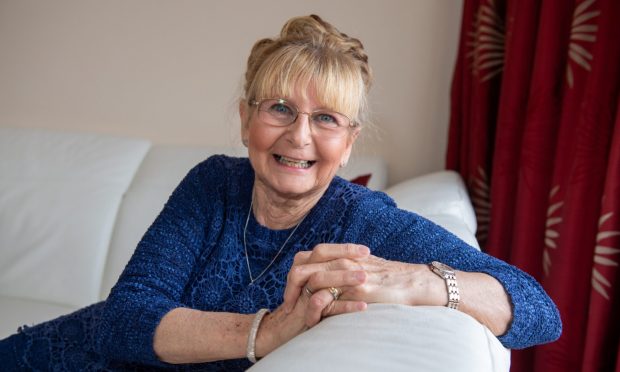
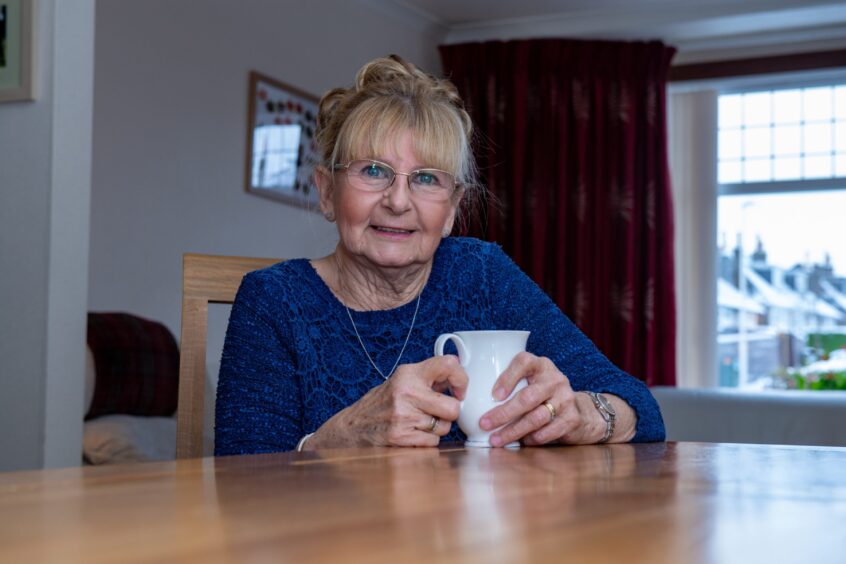
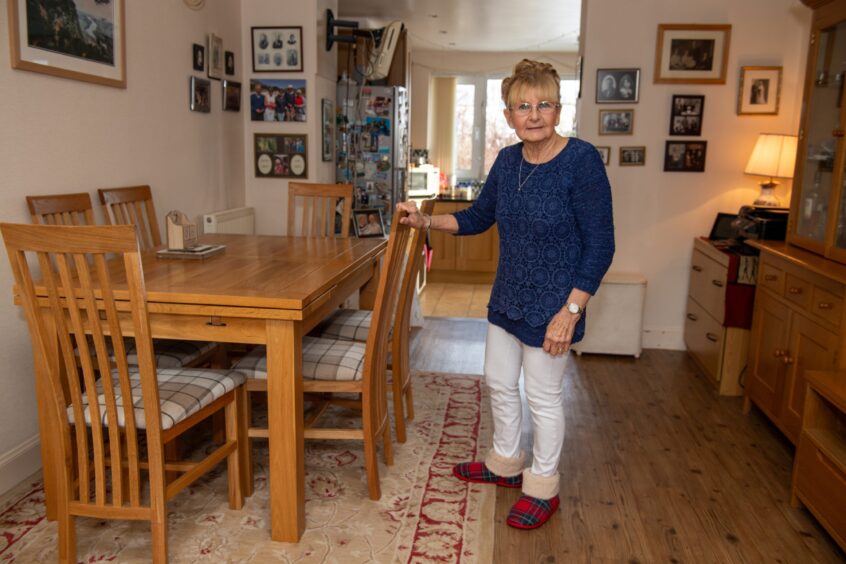
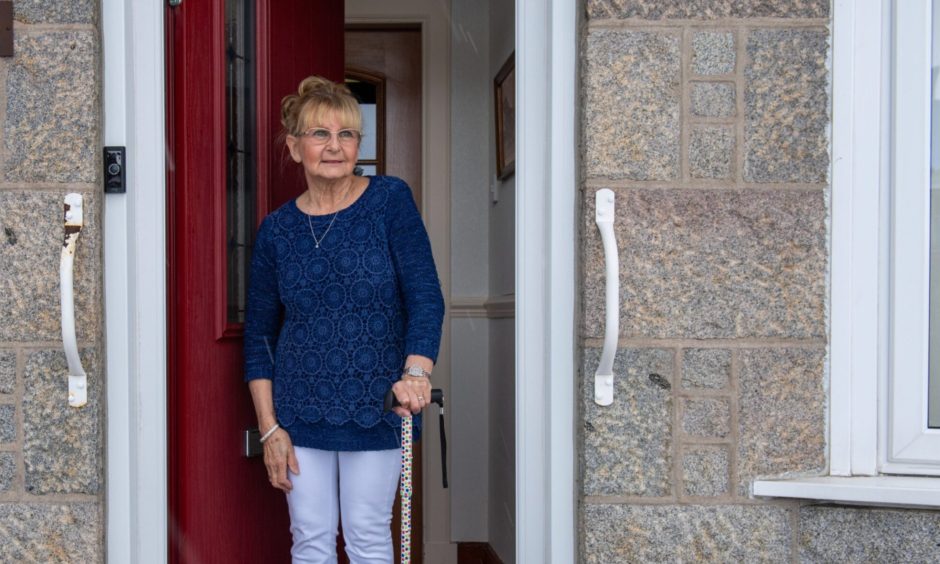
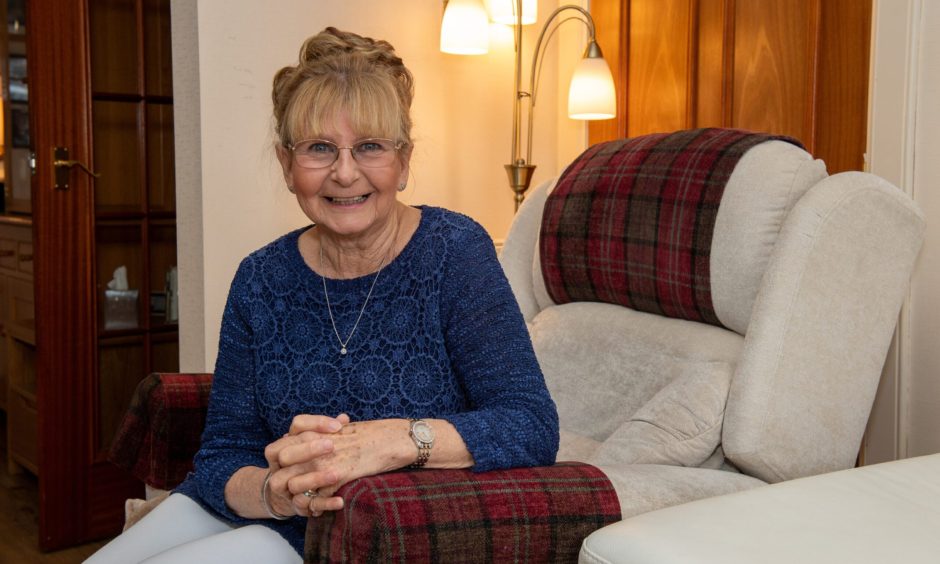
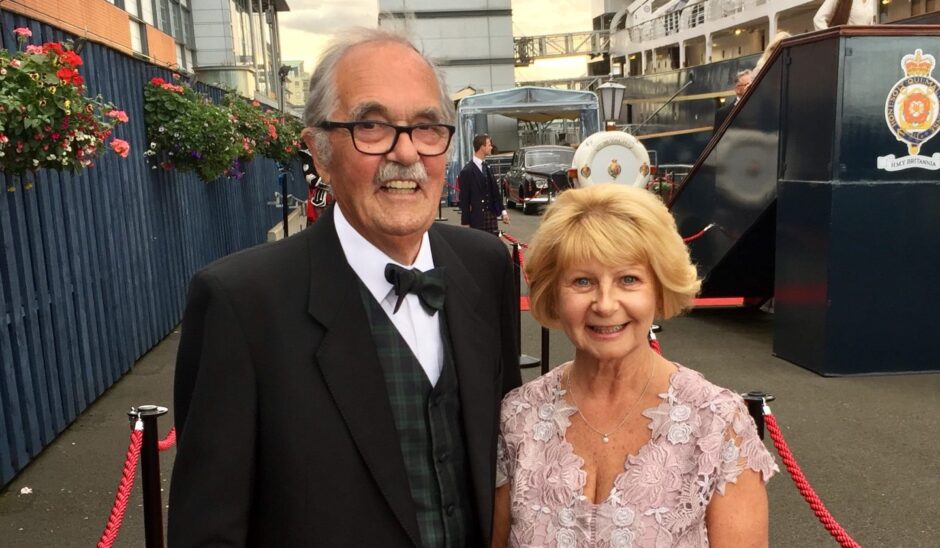

Conversation